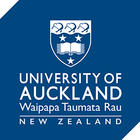University
University of Auckland
Doctor of Philosophy in Civil Engineering
This course is available
On-Campus
Level of Study
Doctoral Degree
Duration
3 years
Next start date
Expected Jul 2024
Campus
Newmarket Campus
Summary
The PhD is a globally recognised postgraduate research degree and the highest level of degree you can achieve. PhD students are critical, curious, creative thinkers who undertake original research over at least 3 years.
This course is also offered at overseas locations.
Civil Engineering
Civil Engineering is about the creation, improvement and protection of the environments we live in.
Subject overview
Civil Engineering teaches you about the effective planning, design and construction of the built environment. This includes the working and living spaces people depend on, as well as critical infrastructure such as motorways, bridges, and water supply networks. The many and varied elective courses available within Civil Engineering encourage you to find a path that resonates with your own interests, giving you opportunities to see how you can shape the world that we live in.
This specialisation gives you the chance to see how you can shape the world we live in. In topics with an environmental focus, you will learn how to design, develop and evaluate structures, equipment and systems to provide practical solutions to problems caused by increasing consumption and waste.
Some of the topics you can study in Civil Engineering include:
- Structural Engineering
- Transportation Engineering
- Water Engineering
- Construction Management
- Geotechnical Engineering
Programme structure
The University of Auckland PhD is a three-to-four year full-time advanced research degree.
On possible to the PhD programme, you will be enrolled provisionally. By the end of your first year, you must meet a number of goals to be confirmed into the PhD programme, including developing a full thesis proposal. After confirmation, you will continue to work on your research before submitting your thesis for examination after three years and within four years of your start date. The examination process includes an oral exam.
As part of your PhD study, you can take part in our doctoral skills programme, designed to help you achieve success in your research and develop skills for your future. We have a dedicated postgraduate careers advisor, and our library service includes specialist subject librarians to help you in your research. The central School of Graduate Studies provides dedicated support and advice for the doctoral community.
We welcome research proposals in topics relating to our key areas, including:
- Earthquake engineering, which covers broad research areas such as from seismic assessments, materials, community resilience, and more
- Geotechnical engineering, including soil behaviour modelling, structural foundation systems, dynamic properties of soils, and liquefaction
- Resilience, with a variety of broad topics ranging from building and transportation infrastructure, to organisational management and communities, and disaster reduction
- Structural engineering, on areas such as the development of materials and innovative new solutions
- Transportation, including traffic operations, road safety and skid resistance, network modelling and public transport, and Electric Vehicles
- Water and environmental engineering, focusing on areas such as hydraulic engineering, flow structures, sustainability, waste management, resource recovery, and more
Entry criteria
Masters-level qualification or the equivalent of a bachelors degree with honours
Evidence of significant research, usually undertaken as part of prior study
English language requirements
- IELTS (Academic) - Overall score of 6.5 and no bands below 6.0
- Internet-based TOEFL (iBT) - Overall score of 90 and a writing score of 21
- Paper-based TOEFL - Overall score of 68 and a writing score of 21
- C1 Advanced (previously - Cambridge English: Advanced (CAE)) - Overall score of 176 and no bands below 169
- C2 Proficiency (previously - Cambridge English Proficiency (CPE)) - Overall score of 176 and no bands below 169
- University of Auckland Foundation Certificate in English for Academic Purposes (FCertEAP) - Grade of B-
- University of Auckland English Pathway for Postgraduate Studies (EPPS) - Grade of B-
- Pearson Test of English (PTE) Academic - Overall score of 58 and no PTE Communicative score below 50
- Michigan English Language Assessment Battery (MELAB) - 85
- Trinity College London Integrated Skills in English (ISE) - ISE III with a pass in all 4 components
- LanguageCert - International ESOL - C1 Expert (LRWS) with a high pass overall and no less than a pass in each skill OR C2 Mastery with a pass overall and no less than a pass in each skill
- AEMG English for Academic Purposes Direct Entry Program (AEAP DEP) Final Exam - Overall score of 70% with no section below 65%
- English New Zealand Accredited Pathway Assessment - Assessment Level 3 overall and no skill below Level 2
Studying in NZ
Disclaimer